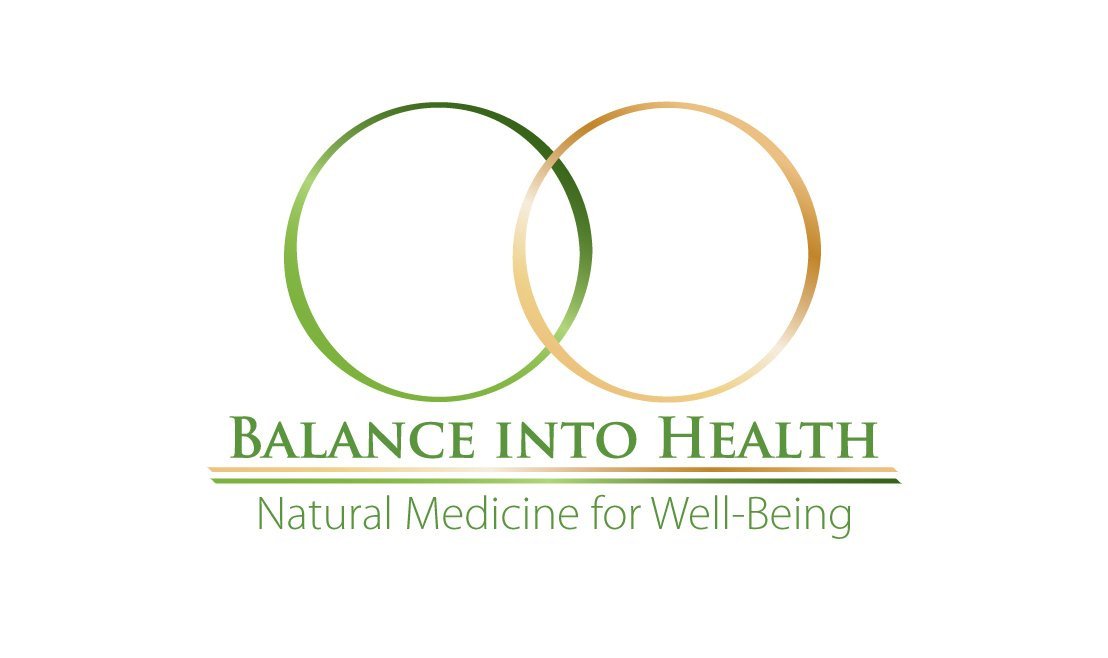Pregnancy and childbirth are deeply transformative experiences in a woman's life. The journey to motherhood is filled with anticipation, joy, and, often, some level of anxiety. While every pregnancy is unique, expectant mothers typically face the decision of choosing who will be their primary caregiver during this vital time. Two essential options are available: birth doulas and conventional midwives. Both professionals offer distinct approaches and support systems. This article delves into the differences between using a birth doula and a conventional midwife during pregnancy and childbirth to help expectant mothers make an informed choice.
Read MoreThe innate and adaptive immune systems mature from infancy to adulthood. Over the past century, developed countries have seen infant mortality rate decline significantly, from 140 per 1000 to 7 per 1000. The main reason for this is good nutrition, hygiene and better protection from infections. The immunological T-cell memory develops over time resulting in young adults suffering fewer infections. Infancy and childhood are the most sensitive periods for the immune system. Here are 9 scientifically-proven ways to support a child’s immune system.
Read MoreHave you felt aches and pains all over, or just not felt right lately? If so, you are not alone. The average American over fifty takes at least five medications regularly, supposedly to stay healthy or just to make it through the day. However, these medications only control symptoms of growing problems. Symptoms and feeling bad are only indications that something is going wrong. It is like the oil indicator light on your car engine.
Read MoreA mother’s milk provides antibodies which protect the baby from many common respiratory and intestinal diseases, and also contains living immune cells. First milk, Colostrum, is packed with components which increase immunity and protect the newborn’s intestines. Artificially fed babies have higher rates of middle ear infections, pneumonia, and cases of gastroenteritis (stomach flu). Breastfeeding as an infant also provides protection from developing immune system cancers such as lymphoma, bowel diseases such as Crohn’s disease and celiac sprue, and juvenile rheumatoid arthritis, all of which are related to immune system function. Breastfed babies generally mount a more effective response to childhood immunizations. In all these cases, benefits begin immediately, and improve with increased duration of breastfeeding.
Read MoreGenetically Modified Organisms (GMOs) have been a subject of extensive research and debate over the past few decades. While they offer potential benefits such as increased crop yields and improved nutritional content, concerns have been raised about their potential health risks. This article aims to provide an in-depth analysis of the health risks associated with GMO foods, focusing on various aspects including allergenicity, toxicity, antibiotic resistance, and unintended effects on human health. By examining the available scientific literature and contrasting different viewpoints, this article offers a comprehensive overview of the current understanding of GMO-related health risks.
Read MoreInvisible to the eye but undeniably important, hormones are our body’s “chemical messengers” that influence everything from our mood and metabolism to our reproductive health and ability to get pregnant. However, with over 50 different hormones in the body, it’s easy to find ourselves experiencing a hormonal imbalance. The good news though is that there are things we can do each day to make sure our hormones stay in check. Read on to learn more about the importance of balancing your hormones, how to do this naturally, and how to get your hormones tested.
Read MoreArtificial Intelligence (AI) and homeopathy, two seemingly disparate fields, are coming together in a surprising synergy that promises to revolutionize the world of healing. This unique intersection of cutting-edge technology and traditional medicine is poised to enhance the effectiveness of homeopathic treatments, making them more personalized, precise, and potent. Artificial Intelligence, with its ability to analyze vast amounts of data and identify patterns, is being harnessed to unlock new insights in homeopathy.
Read MoreSummer activities and vacations have officially begun with many of us thinking of beaches, favorite swimming holes, and tons of outdoor activities. Hopefully, we are also thinking of the strength of the summer sun and how to protect our skin from increased exposure. But even the best of plans occasionally go astray and miss a spot with the sunscreen. If so, let homeopathy come to the rescue.
Read MoreFiber might just be the key to healthy weight management – and nature packages it in perfectly balanced ratios with carbs when you eat them as whole foods. Think unprocessed fruits, vegetables, whole grains, beans, nuts and seeds. Research suggests that carbohydrates are meant to come packaged in nature-balanced ratios of total carbohydrates to fiber. In fact, certain types of fiber affect how completely your body absorbs carbohydrates and tells your cells how to process them once they are absorbed.
Read MoreA study has found that the sex hormone estrogen may have a negative impact on heartbeat regulation, according to an experimental study published in the journal, Science Advances. The study explored the reason why women are more likely to suffer from long-QT syndrome (LQTS), where changes in the heart’s electrical system lead to potentially life-threatening arrhythmia.
Read MoreIn today's fast-paced world, maintaining a healthy lifestyle has become increasingly important. Nutrition plays a vital role in our overall well-being, affecting everything from our energy levels and mood to our long-term health outcomes. While many people strive to make healthy food choices, it can be challenging to navigate the vast amount of conflicting information available. This is where a nutrition consultation can be immensely beneficial. In this article, we will explore the advantages of seeking professional guidance through a nutrition consultation.
Read MoreHormones play a crucial role in regulating various bodily functions, including metabolism, reproduction, mood, and sleep. Any disruption or imbalance in hormone levels can lead to a wide range of health issues. While conventional medicine offers treatments such as hormone replacement therapy, naturopathy provides a holistic and natural approach to promoting hormone health. Naturopathy focuses on identifying and addressing the underlying causes of hormonal imbalances through lifestyle modifications, dietary changes, herbal remedies, and other natural therapies. In this article, we will explore seven ways in which naturopathy can benefit hormone health.
Read MoreHomeopathy is a holistic system of medicine that has gained popularity as an alternative approach to healthcare. It is based on the principle of "like cures like," where highly diluted substances are used to stimulate the body's innate healing abilities. While the effectiveness of homeopathy in treating fertility concerns is a topic of debate, many individuals have reported positive outcomes. In this article we'll explore ten ways homeopathy is often used to address fertility concerns.
Read MoreHomeopathy is a form of alternative medicine that has been used for centuries to treat various health conditions. It is based on the principle of treating "like with like," meaning that a substance that causes symptoms in a healthy person can be used to treat similar symptoms in a sick person. Homeopathy is a holistic approach that takes into account the physical, mental, and emotional aspects of a person's health. Here we present ten benefits of homeopathy.
Read MoreAsthma is a respiratory disease characterized by difficult breathing which cause coughing, wheezing when you exhale, and shortness of breath. In this condition, there is narrowing and swelling of airways and may produce extra mucus. Asthma can occur at any age, it frequently appears in childhood or early adulthood.
Read MoreResults of a large prospective cohort study were recently published in Alzheimer’s & Dementia, describing the association between vitamin D supplementation and dementia incidence within the National Alzheimer's Coordinating Center (NACC) cohort. As the authors point out, there is considerable interest in vitamin D as a potential modifier of risk, as dementia affects 50 million people around the world and prevalence is predicted to triple by 2050, with a lack of effective medications for either treatment or prevention.
Read MoreIt is difficult to overestimate the importance of sufficient quality and duration of sleep on nearly every body system, and multiple recent trials emphasize the critical role it plays in cardiovascular health, including implications for causality to both peripheral and coronary artery disease.
Read MoreMore evidence of the likely neuroprotective effect of magnesium was recently published in the European Journal of Nutrition. This study comes on the heels of an analysis of NHANES data published last year in Alzheimer’s & Dementia which found that a higher total intake (diet and supplemental) of magnesium was associated with better cognitive function among participants aged 60 and older.
Read MoreA staggering eight million tons of plastic are dumped into the oceans every year; plastic from carrier bags, packaging, food containers and drink bottles. Once released into the environment, plastic waste leaches toxic chemicals which kills wildlife and contaminates the ecosystem. Marine animals eat the plastic which compromises their health and spreads these toxic chemicals through the food chain. The chemicals in plastics have been linked to serious health conditions in humans, including birth defects, infertility, cognitive decline and cancer. Learn about the harmful effects of plastics and 7 ways to reduce plastic use to support your health and the environment.
Read MoreA recent study has found that the consumption of watermelon may positively impact hepatic gene expression and upregulate lipid metabolism in obese mice. The current Western diet, often characterized by intake of high levels of saturated fats, cholesterol, and refined carbohydrate, has been shown to contribute to the development of non-alcoholic fatty liver disease (NAFLD) and non-alcoholic steatohepatitis (NASH), both associated with excessive fat accumulation in the liver.
Read More



















